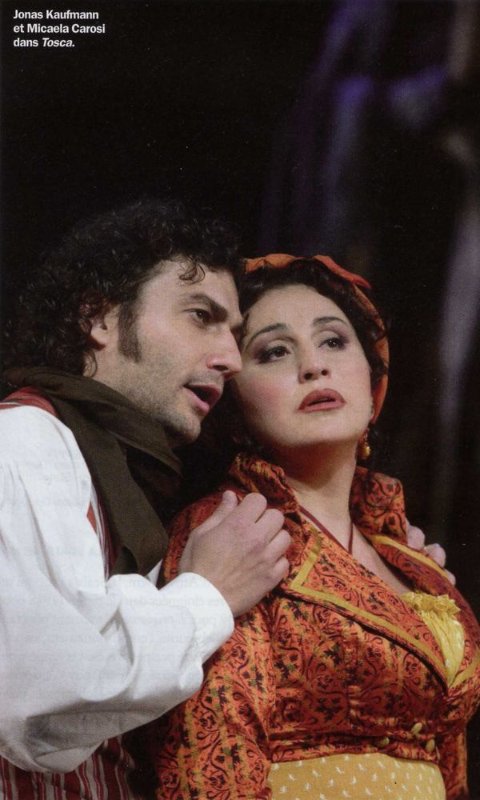|
|
|
|
|
|
|
|
| The Guardian, 14 May 2008
|
| Tim Ashley |
Puccini: Tosca, London, ROH, 12 May 2008
|
Tosca
|
|
|
 When Jonathan Kent's production of Tosca opened
two years ago, there were mutterings that it bore too close a resemblance to
its predecessor, the 1964 Franco Zeffirelli staging that served the Royal
Opera for four decades. But despite occasional - indeed inevitable -
similarities in design, the two stagings are, in fact, markedly different in
tone. When Jonathan Kent's production of Tosca opened
two years ago, there were mutterings that it bore too close a resemblance to
its predecessor, the 1964 Franco Zeffirelli staging that served the Royal
Opera for four decades. But despite occasional - indeed inevitable -
similarities in design, the two stagings are, in fact, markedly different in
tone.
Where Zeffirelli regarded Puccini as a realist, Kent views him as decadent
and repeatedly emphasises the transgressive quality of the action. He
quietly reminds us that everything that happens - even the love scene
between Tosca and Cavaradossi - is dangerously out of place in a church.
Scarpia's centre of operations, meanwhile, is a desecrated library, where
torture chambers lurk behind shelves of Enlightenment tomes. The atmosphere
is unnerving, though Kent becomes overly symbolist in the closing scenes, in
which a huge wing, suggestive of both fate and freedom, hovers over the
lovers' final colloquies.
This latest revival is spellbinding, its only weakness, sadly, being Micaela
Carosi's Tosca, a grand manner performance, sung with thrilling heft, but
dramatically too reliant on all-purpose gestures. Her old-school style
throws the subtlety of Jonas Kaufmann's Cavaradossi and Paolo Gavanelli's
Scarpia into sharp relief. Both are superb. Kaufmann is a revolutionary
sensualist, who alternately woos Carosi with meltingly beautiful pianissimos
and defies Gavanelli with electrifying sequences of high notes.
Gavanelli oozes evil from start to finish, yet you also sense the mixture of
proletarian unease and fierce ambition that have made him the monster he has
become. In the pit, meanwhile, Antonio Pappano adds to the malaise with
conducting of insidious beauty and oppressive force. |
|
|
|
|
|
|
|
|
|
|
|
|
|
|
|
|
|
|